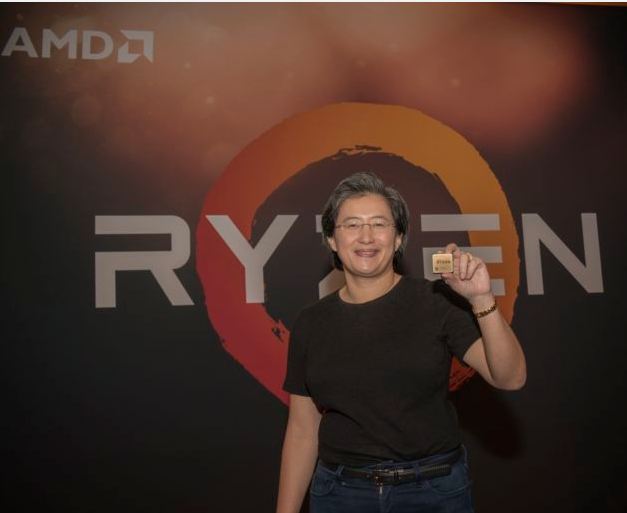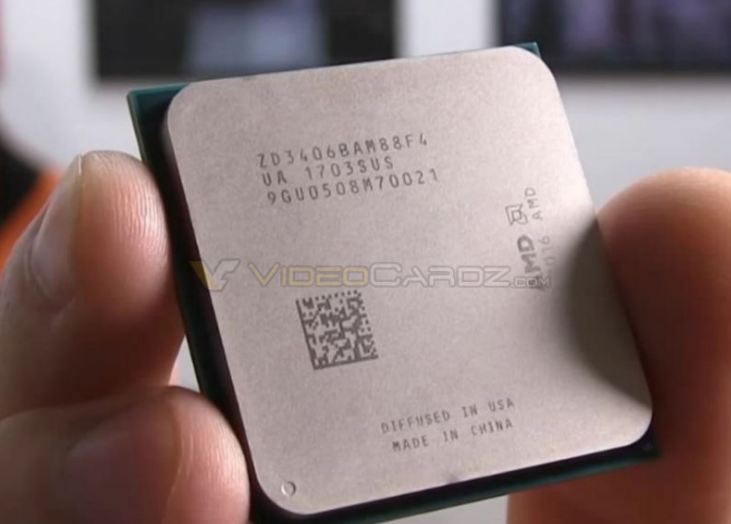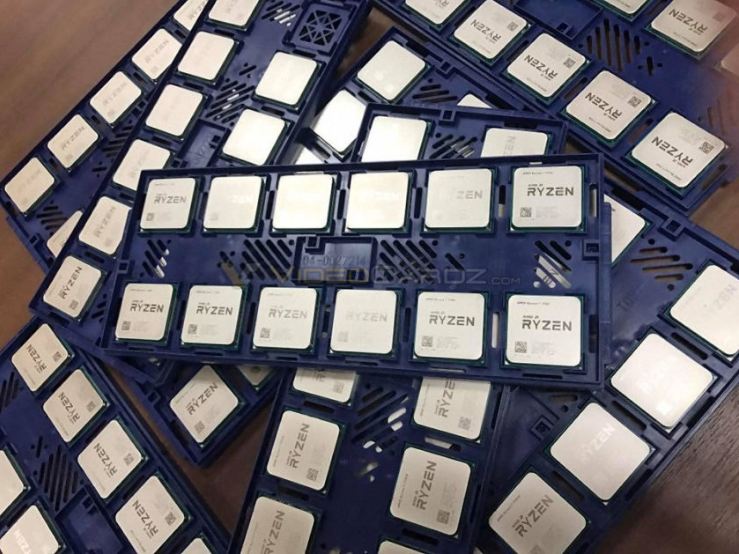The biggest ever x86 launch for AMD in the past five years finally happened awhile back. Yes, Ryzen has finally marked its debut in the presence of a small gathering comprising mainly analysts and media folks at the Grand Hyatt hotel in San Francisco. The event saw AMD CEO Dr. Lisa Su unwrapping what can be deservedly called one of the most-anticipated product line in the semiconductor industry.

The official Ryzen announcement was aligned with the rule of thumb that smartphone manufacturers almost always follow with their product launches, i.e. to give away the details of a product just a week or two in advance before it hits the store shelves. The Ryzen processors are expected to become commercially available starting March 2, and today — on Feb 22 — the company has officially introduced it to the masses.
Note that, all the information you will be reading in this article henceforth were provided by AMD, and not by the rumor mills as had been the case recently.
AMD Ryzen chips unveiled with a special emphasis on the 7-series CPUs
Naming the parts and branding them in the commercial market are undoubtedly among the most complicated tasks associated with a new processor launch. As you know, in the case of Ryzen, AMD has decided to split the new chips into the following three categories:
- Ryzen 7 series at the highest end
- Ryzen 5 series in the middle, less powerful and less expensive than the 7-series
- Ryzen 3 series for price-sensitive consumers

Note that, AMD is not launching Ryzen 3 and Ryzen 5 right away, meaning the highest-end 7-series CPUs will be the first ones in the family to be introduced.
The Ryzen 7 series comprises three CPUs to begin with, all of them sporting eight cores and support for simultaneous multi-threading.
- Ryzen 7 1800X: 8C/16T, 3.6 GHz base, 4.0 GHz turbo, 95W, $499
- Ryzen 7 1700X: 8C/16T, 3.4 GHz base, 3.8 GHz turbo, 95W, $399
- Ryzen 7 1700: 8C/16T, 3.0 GHz base, 3.7 GHz turbo, $329
The Ryzen 7 series is spearheaded by the flagship Ryzen 7 1800X that features a base clock of 3.6 GHz and a turbo of 4.0GHz with a TDP of 95w. Priced at $499, the chip is accompanied by the $399 Ryzen 7 1700X that comes with a base/turbo clock speed of 3.4/3.8 GHz. At the lowest end of the product line is the Ryzen 7 1700 which boasts a base/turbo clock speed of 3.0/3.7 GHz and will sell at $329.

The processors are going to available for pre-order from as many as 185 retailers and OEM all over the world — either in pre-built systems or as individual parts.
| AMD Ryzen CPU | Cores/Threads | L3 | TDP | Base | Turbo | XFR | Price |
| AMD Ryzen 7 1800X | 8/16 | 16MB | 95W | 3.6GHz | 4.0GHz | 4.0GHz+ | $499 |
| AMD Ryzen 7 1800 Pro | 8/16 | 16MB | 65W | TBA | TBA | N/A | TBA |
| AMD Ryzen 7 1700X | 8/16 | 16MB | 95W | 3.4GHz | 3.8GHz | 3.8GHz+ | $389 |
| AMD Ryzen 7 1700 | 8/16 | 16MB | 65W | 3.0GHz | 3.7GHz | N/A | $319 |
| AMD Ryzen 5 1600X | 6/12 | 16MB | 95W | 3.3GHz | 3.7GHz | 3.7GHz+ | $259 |
| AMD Ryzen 5 1600 | 6/12 | 16MB | 65W | TBA | TBA | N/A | TBA |
| AMD Ryzen 5 1500 | 6/12 | 16MB | 65W | 3.2GHz | 3.5GHz | N/A | $229 |
| AMD Ryzen 5 1400X | 4/8 | 8MB | 65W | 3.5GHz | 3.9GHz | 3.9GHz+ | $199 |
| AMD Ryzen 5 1400 | 4/8 | 8MB | 65W | TBA | TBA | N/A | TBA |
| AMD Ryzen 5 1300 | 4/8 | 8MB | 65W | 3.2GHz | 3.5GHz | N/A | $175 |
| AMD Ryzen 3 1200X | 4/4 | 8MB | 65W | TBA | 3.4GHz | 3.8GHz | $149 |
| AMD Ryzen 3 1200 | 4/4 | 8MB | 65W | TBA | TBA | N/A | TBA |
| AMD Ryzen 3 1100 | 4/4 | 8MB | 65W | 3.2GHz | 3.5GHz | N/A | $129 |
Another interesting aspect here:
As you know, IPC — acronym for Instructions Per Clock — is the commonly used measure of how much improvement the underlying microarchitecture undergoes while moving from one generation to the next.
Till 15-20 years back, double-digit gains were the norm maintained by almost all good designs on smaller nodes. However, recently that figure has come down to the 5 – 10% bracket. So, when AMD first said that Zen would bring an IPC gain of 40%, the vast majority of us remained by and large skeptical.
In fact, the 40% gain objective seemed a tough nut to crack despite the fact that AMD re-recruited Jim Keller to collaborate with AMD’s long-term architect Mike Clark on the project. However, almost to everyone’s surprise, AMD confirmed during the launch today that the final output was an IPC gain of 52%.
Finally, during the event, AMD also emphasized on the point that the new 8-core silicon design has 4.8 billion transistors running on it in addition to 200m of wiring.
So, what do you think about Ryzen? Would you pick it over Intel’s $1000+ equivalents? Let us know in the comments. Oh well, you might also be interested in the following pieces for a better insight into Ryzen’s 7’s abilities:
- AMD Ryzen 7 1700X Destroys Intel Core i7 5960K, Goes toe to toe with Core i7 6900k [Benchmarks]
- AMD Ryzen 7 1800X Just Destroyed Intel’s $1000+ 8-Core CPUs In Recent Leaked Benchmarks
